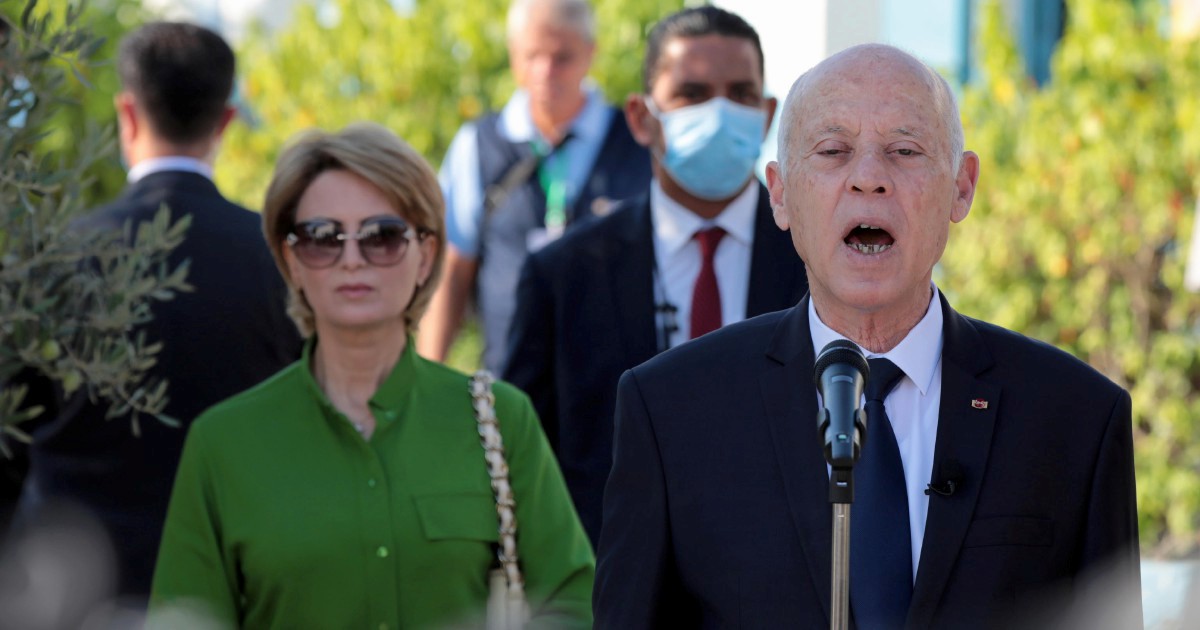The Tunisia is now one step away from economic meltdown. The North African country, which has been suffering for years a strong crisis economic due to political chaos and of pandemic of Covid-1 in addition to the food shortages and of fuel deriving from the war in Ukraineis now in a position of desperate need for international financial aid, thus raising fears for its own debt default and on one of his, increasingly probable, financial collapse.
Last December the International Monetary Fund (IMF), after months of talks between its officials and the Tunisian government, has taken the decision to freeze the $1.9 billion loan that he had promised the president Kais Saied in exchange for austerity policiesincluding the cuts to public services and food and energy subsidies. As if that weren’t enough, on March 7 the World Bank announced the suspension of the Country Partnership Frameworkdeclaring in a note its willingness to block its cooperation with Tunis following the “racist, and even violent” comments that the Tunisian president Saied had launched against i sub-Saharan migrants present in the country.
The economic crisis and the role of the IMF – Since 2011, the Tunisian economy has been hit by a severe crisis, mainly fueled by the rampant institutional corruption and from the political chaos of the post-revolutionary period. However, the situation has worsened further in recent years, with aannual inflation of the local currency above 5% since 2017 and one unemployment at 15.2%. In recent months, food inflation has reached a record rate of 15.6%, the highest figure since 1990, and items such as sugar, milk, vegetable oil and rice periodically disappear from supermarkets.
In 2022 Tunisia then started negotiations with the IMF for the $1.9 billion loan aimed at stemming the liquidity crisis and saving the country from financial meltdown. In fact, the agreement aims to restore the country from its long economic crisis, facilitating the supply of food and energy products, the payment of wages and the service of the debt. The IMF, to unblock the loan, has asked Tunis to reduce the growth of public wage coststo phase out energy subsidies with regular price increases and to support the tax collectionwhile strengthening the social safety net.
Tunisia’s 2023 budget therefore plans to reduce the fiscal deficit to 5.2%, from a forecast of 7.7%, by raising taxes for several professions, including lawyers, engineers and accountants, from 13% to 19%. and by decreasing wage bills in the public sector by one percentage point. Furthermore, again during 2023, the government expects to reduce subsidy spending by 26.4%, especially for energy and food support, even increasing drinking water prices.
The largest trade union in the country, theUgtthowever, he declared war on the austerity policies carried out by the Tunisian government blocking the entire country with strikes and demonstrations and even managing to obtain a 5% increase in the salaries of public sector employees. The Monetary Fund has therefore signaled that it will not go ahead with the bailout requested by Tunis unless the government involves the trade unionin open opposition to Saied and his increasingly authoritarian policies.
The role of Italy and the EU and the migration crisis – One of the most immediate effects of this economic crisis, at least for Europe and Italy, is the risk of one strong destabilization of the entire Mediterranean area, which could trigger a new one wave of migrants towards the peninsula. Since the beginning of 2023, Italy has in fact welcomed more than 20 thousand migrants and, according to data from United Nations12,000 of those who reached Italian soil this year set sail from Tunisia, compared to 1,300 in the same period of 2022.
Moreover, according to the data of the Forum for social and economic rights of Tunisia, the guard Tunisian coast prevented more than 14,000 migrants from embarking on Italian shores during the first three months of this year, compared to 2,900 in the same period last year. Italy then urged, through the foreign minister Antonio Tajanithe director of the IMF Kristalina Georgieva to show greater flexibility in the negotiations to avoid a possible economic collapse of the North African country: “I reiterated the need for the Fund to intervene quickly in favor of Tunisian stability and growth with economic and financial support”, explained Tajani in a hearing on 23 March to the House and Senate Foreign Affairs Committees on the results of the last EU Foreign Affairs Council, adding that “uncontrolled irregular migration can only be reduced by improving the conditions of security and economic stability” of the North African country.
On the same location is also theEuropean Union. “The situation in Tunisia is very, very dangerous,” said the foreign policy commissioner Joseph Borrell following a meeting of EU ministers in Brussels on March 20, in the margins of which the Commission mandated i foreign ministers of Belgium and Portugal to visit Tunisia to “evaluate the situation and return with a report that will guide future steps” by the EU, as well as discuss cooperation on irregular migration. However, on Tuesday 21 March the Tunisian Foreign Ministry rejected the comments of EU Commissioner Borrell defining them “exaggerated, both in consideration of the established resilience of the Tunisian people throughout its history, and in consideration of the threat of migration to Europe from the south”. On 27 March the EU economic affairs commissioner, Paul Gentiloniis nonetheless expected in Tunis for a meeting with the Tunisian president Kais Saied aimed at discussing the modalities of a potential new financial assistance operation, which the EU Commission could take into consideration if the preliminary conditions are met. Italian premier Meloni said she was satisfied with the fact that on the migration issue there had been “a change of pace” on the part of the European institutions, explaining that “migration remains a priority of the EU’s objectives”.
